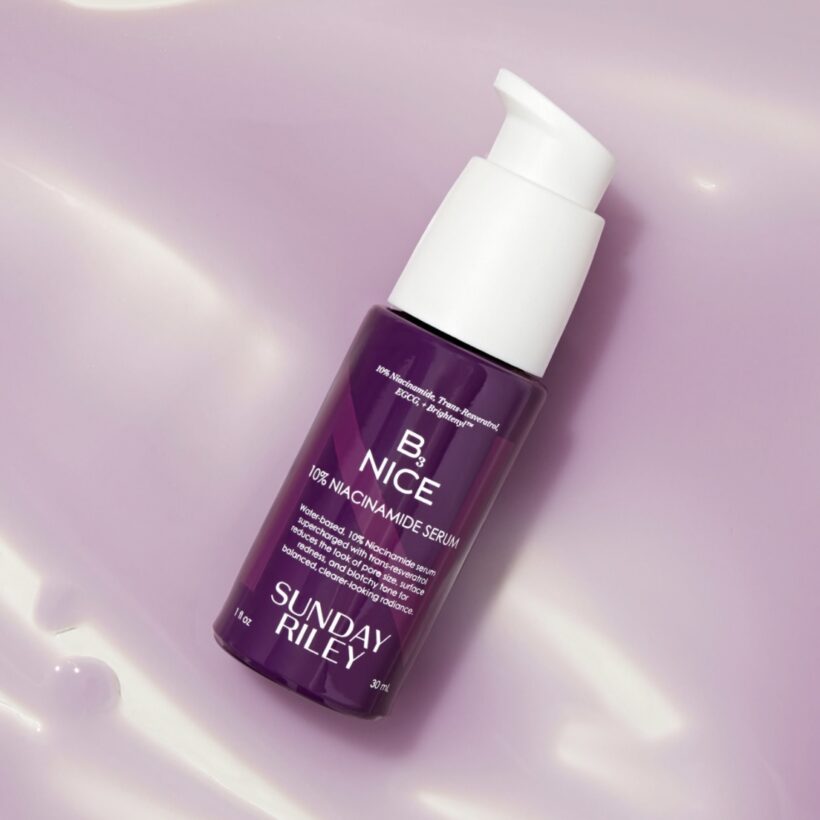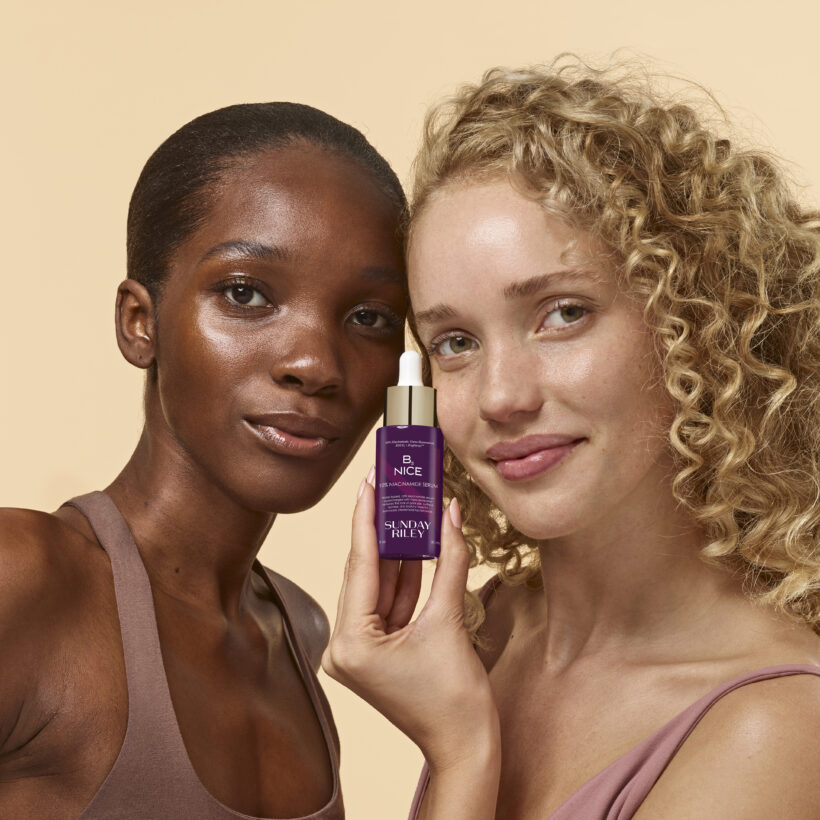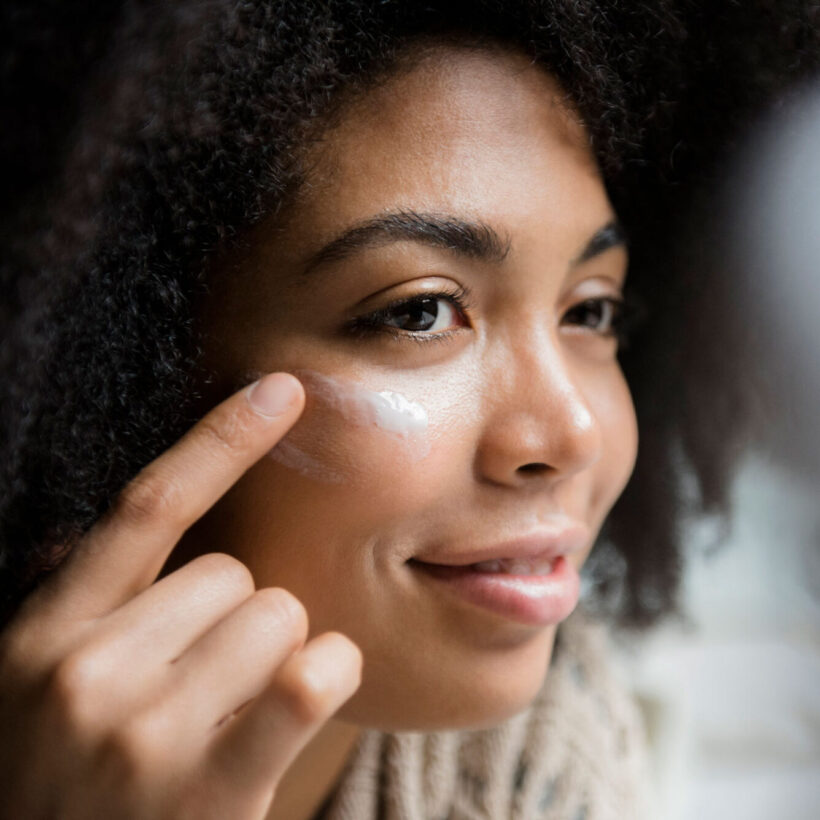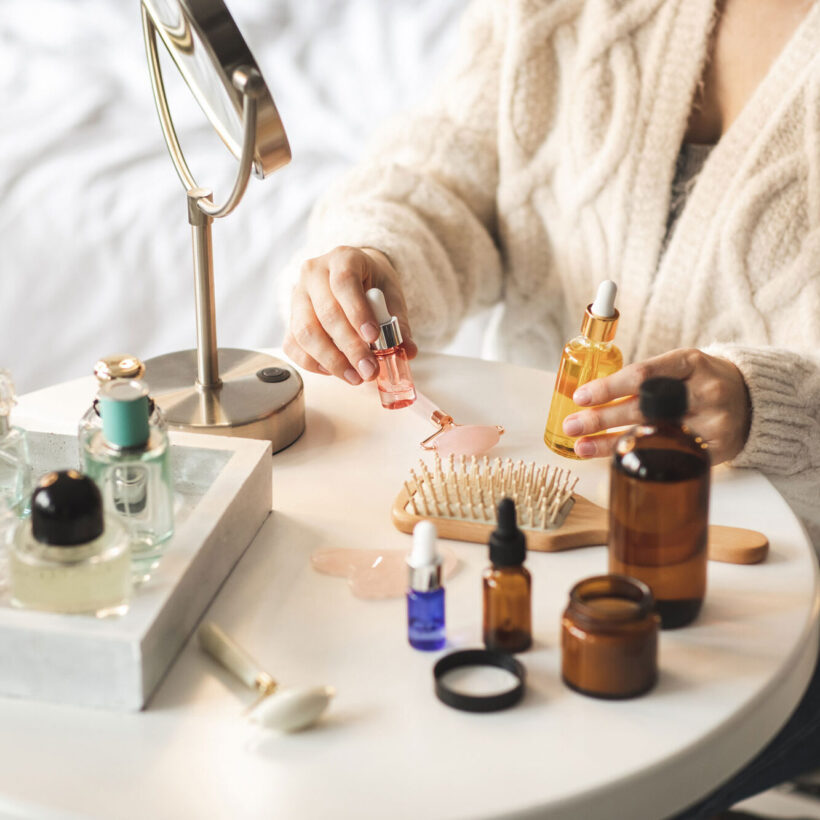ICYMI: We just launched our newest serum and the main-star ingredient is niacinamide. It’s called B3 Nice 10% Niacinamide Serum and its potent formula can help minimize the appearance of pores, reduce hyperpigmentation, and even improve post-acne dark spots. It’s already getting rave reviews and joining the ranks of becoming a true staple in the ultimate skincare routine.
While “Nice” is short for niacinamide, it got us thinking about the overall importance of being nice — not just to those around us, but also, and arguably most importantly, to ourselves. Being nice to ourselves isn’t a simple concept, but rather something we should strive to do on a daily basis in all areas: mental, physical, and emotional.
Society places a strong emphasis on our physical well-being; however, the reality is that the mind and body are very much interconnected. In fact, when we’re coping with issues in life that cause us anxiety or stress, it can manifest in our appearance, namely in our skin. “We know that stress can increase cortisol levels which can impact our skin so during periods of stress, some people can notice changes to their skin, especially breakouts and flare-ups of certain skin conditions such as eczema,” says Marisa Garshick, M.D., a dermatologist at Medical Dermatology & Cosmetic Surgery (MDCS) in New York. “Just like taking care of our overall health, our skin likes consistency and routine and for many products to be effective, they need to be used regularly.”
Meet the Experts
Marisa Garshick, M.D., is a dermatologist at Medical Dermatology & Cosmetic Surgery (MDCS) in New York.
Saba Harouni Lurie, L.M.F.T., is a licensed therapist and founder of Take Root Therapy in Los Angeles.
Brendan Camp, M.D., is a Manhattan-based dermatologist at MDCS Dermatology.
Blair Murphy-Rose, M.D., is a cosmetic and medical dermatologist in N.Y.C. and the Hamptons with Laser & Skin Surgery Center of New York and a clinical instructor of dermatology at NY Presbyterian Hospital – Weill Cornell Medical Center.
Bill Daniels, CSCS, is a certified life coach, NASM-certified personal trainer, and owner of Beyond Fitness.
Kathryn Burnett, Psy.D., is a licensed clinical psychologist at the Maryland Cognitive Behavioral Treatment Center.
Of course, certain aspects of our health are out of our control, but much of our ability to improve our overall wellness is in our control — and it starts with being “nice” to ourselves. Here, experts in a myriad of different fields share their best tips for how you can start taking care of yourself and, ultimately, improve your physical, emotional, and psychological well-being.
Eat a healthy, balanced diet
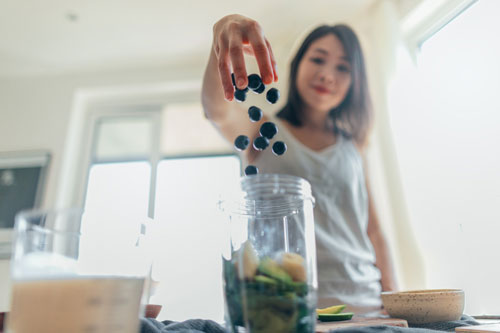
Eating a nutrient-rich diet that incorporates several food groups and plenty of colors found in nature can go a long way for your skin health. Colorful fruits and vegetables offer antioxidants to help protect the skin from free-radical damage, notes Dr. Garshick. It is thought that eating a well-balanced diet and staying hydrated can help even to keep the skin looking healthy,” she says. “While we know it is important to commit to a healthy diet and certain foods may be associated with increased inflammation, such as those with a high glycemic index, it’s not necessarily known if eliminating certain things from the diet will actually help or treat the skin.”
Move your body
Exercise releases a rush of feel-good chemicals like endorphins that can help combat depression and anxiety and even lower our stress levels, according to the American Psychological Association. If you’re not a big fan of standard exercise, like going for a run or hitting the gym, don’t discount other ways of getting your body moving, be it dancing in your living room or gardening outside, notes Saba Harouni Lurie, L.M.F.T., a licensed therapist and founder of Take Root Therapy in Los Angeles. “Find what works for you, and do what feels good and your body and your mind will thank you,” she adds.
Improve your sleep hygiene
You know that sleep is important and that an average of 7-9 hours per night is what’s recommended, however, you’re probably not getting that much on a consistent basis. In fact, about 1 in 3 adults is getting less than 7 hours of sleep each night, according to a study published by the Centers for Disease Control and Prevention (CDC). “Getting enough sleep is important to give our brains and bodies time to recover from the previous day, repair itself, and prepare for the coming day,” says Brendan Camp, M.D., a Manhattan-based dermatologist at MDCS Dermatology. “Without sufficient rest our bodies are not able to perform as well as they could, which may translate into illness, reduced immunity and mental fog.”
Establish — and stick with — a skincare routine
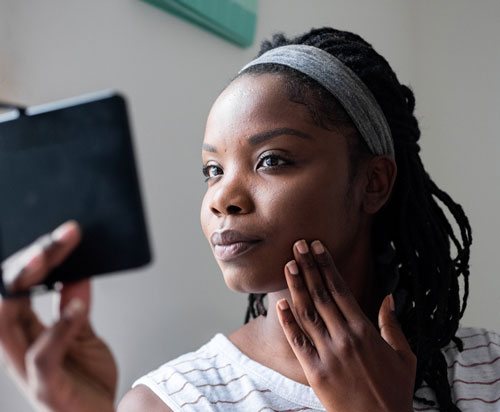
When you establish a skincare routine, it is taking time out of the day for you, notes Dr. Garshick. “The consistency of a routine can be helpful for our well-being as it becomes either a morning or evening ritual,” she says. Even if it’s a short, 5-minute process where you apply the most basic skincare products, simply taking action and being purposeful with your skincare efforts can go a long way for your physical and mental health.
Lower your alcohol intake
Enjoying a cocktail or a glass of wine here or there is one thing, but drinking excessively or too frequently can take a toll on your health — especially your skin health. “We know that alcohol causes oxidative stress in the body and increased inflammation as well as increased levels of free radicals that contribute to skin aging and the breakdown of collagen and elastin,” explains Blair Murphy-Rose, M.D., a cosmetic and medical dermatologist in New York. “Alcohol consumption can also affect the cells of the immune system, leading to an environment more favorable to other acne-associated bacteria.”
Destress
Especially in our day and age, it’s hard not to get distracted by your phone, the TV, or the news, but many of these are just distractions that cause us stress. And stress is toxic for your health in every way. When you are stressed, your body releases higher levels of cortisol, which can lead to an increased risk for a myriad of chronic diseases, per the CDC. “There are times for those things, but don’t get lost in those things before you do the things you need to do for yourself,” says Bill Daniels, CSCS, a certified life coach, NASM-certified personal trainer, and owner of Beyond Fitness. “Take a few moments to breathe or meditate, go for a walk, or spend time with loved ones so that you are living in the moment.”
Spend time with loved ones

Relationships that offer support and care can help your physical and mental health, notes Lurie. “Nurturing, safe relationships have the potential to lower your stress levels, which can, in turn, have positive ramifications on your overall health,” she says. She recommends scheduling weekly or even monthly time to connect with the people you feel good around, as this will ideally benefit all involved.
Don’t hesitate to get help
“Help can be a lot of things — talking to a doctor, a therapist, or a religious or spiritual leader, sharing with a friend or family member, learning online, reading books, and others,” says Kathryn Burnett, Psy.D., a licensed clinical psychologist at the Maryland Cognitive Behavioral Treatment Center. “In certain situations, having the right support can make a big difference, sometimes even getting you to your goal quicker, or giving you the structure you need in getting through a difficult place.” Consider reaching out to a professional who can help you overcome some of the areas in your life that you may be struggling with — that’s the best type of self-care of all.
We only recommend products we have independently researched, tested, and loved. If you purchase a product found through our links, Sunday Edit may earn an affiliate commission.

